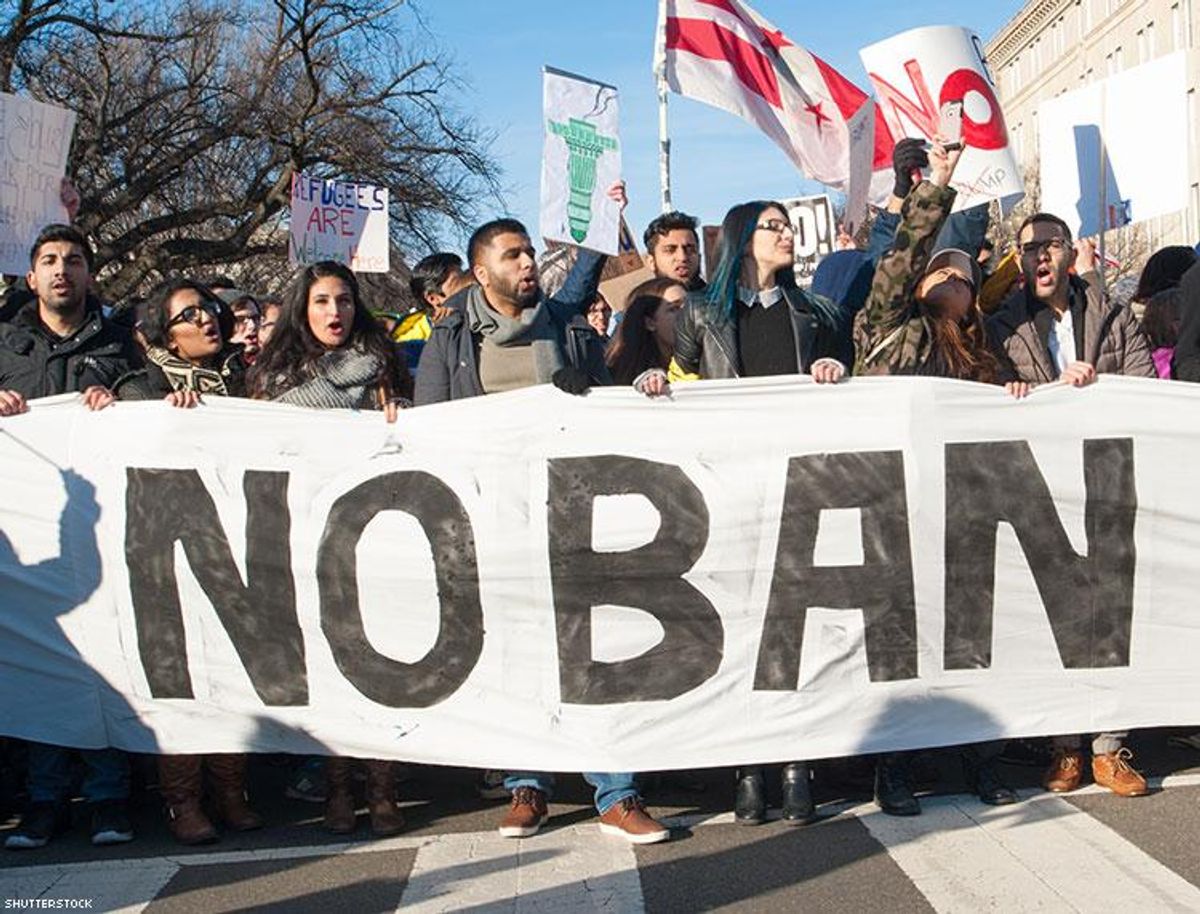Congress adopted and the U.S. Supreme Court upheld the Chinese Exclusion Act of 1882, the first piece of federal legislation that singled out a minority group for invidious discrimination and barred their entry.
From 1987 to 2010, there was an anti-HIV travel ban. President Reagan issued an executive order enforcing the ban, which President Bush extended, barring people with AIDS or who were HIV-positive from entering the United States. Congress codified the order into federal law in 1993.
From 1952 to 1990, Congress barred gay people from traveling to the U.S. because they were persons of "psychopathic personality." The U.S. Supreme Court upheld the law and its application.
Donald Trump ordered three separate anti-Muslim travels bans this year. Most recently, on September 25, Trump revised his anti-Muslim travel ban, barring people from North Korea, Venezuela, and six majority-Muslim countries -- Chad, Iran, Libya, Somalia, Syria, Yemen -- from coming to the United States, and delaying all refugee entries.
We're challenging these bans in court. The National Queer Asian Pacific Islander Alliance, the New York City Gay & Lesbian Anti-Violence Project, and Immigration Equality, with the pro bono assistance of Skadden Arps Slate Meagher & Flom LLP, filed an amicus ("friend of the court") brief in the U.S. Supreme Court to show the impact of Trump's travel ban on the LGBT community. Multiple lower courts previously ruled against Trump and suspended the travel ban.
Our brief shows that homosexuality is criminalized in the counties subject to the ban. Many LGBT people in those countries are fleeing oppression due to their sexual orientation or gender identity. Trump's travel ban prevents them from reaching safety and from escaping persecution and life-threatening conditions in their home countries or in refugee camps abroad.
American LGBT citizens and lawful permanent residents who have partners and LGBT family members abroad seeking refuge in the United States are also affected. Trump's travel ban threatens the lives of immigrants and refugees from all walks of life.

When Trump revised the travel ban, the U.S. Supreme Court -- which had scheduled oral arguments in two lawsuits challenging the travel bans to be held October 10 -- abruptly canceled the hearing. Though Trump added a few of the named countries, it is still a thinly veiled attempt to show the courts that the bans weren't really anti-Muslim. Just mostly anti-Muslim.
And a number of other Muslim countries that are home to a Trump Tower or Trump enterprise were not included, such as Saudi Arabia, Turkey, the United Arab Emirates, Egypt, and Indonesia. Indeed, some anti-American terrorists are known to have originated from three of these nations.
Trump's anti-Muslim travel ban has a direct impact on the LGBT community. NQAPIA has been leading a national campaign in the LGBT community protesting the ban in court, building awareness, and lifting up the stories of LGBT Muslims in America.
We've seen all this before. We must never forget past travel bans that have afflicted on our own community. Let's never again have another travel ban against another community. No one is free until we are all free.
GLENN D. MAGPANTAY is a lawyer and executive director of the National Queer Asian Pacific Islander Alliance. NQAPIA is a nationwide federation of LGBT Asian-American, South Asian, Southeast Asian, and Pacific Islander organizations. Contact Glenn at glenn_magpantay@nqapia.org.













































































